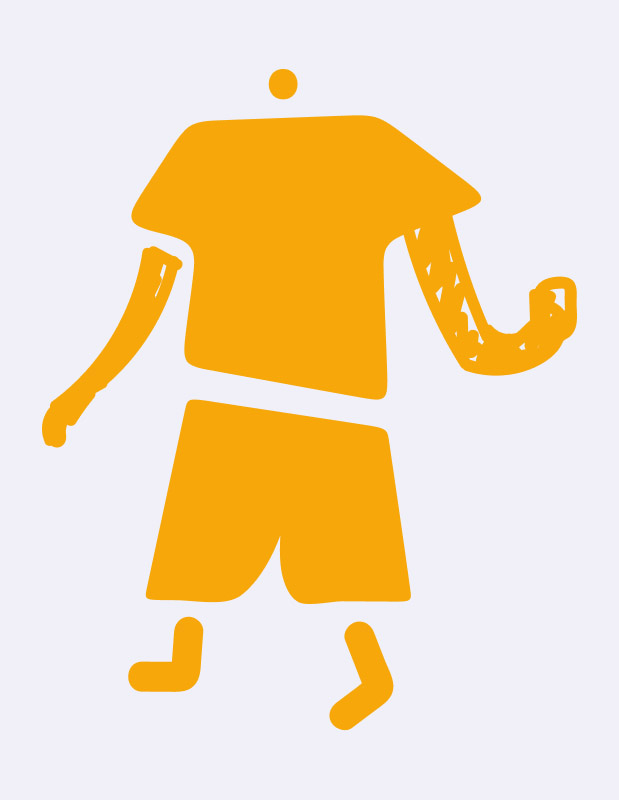Home » Zwangerschapsbegeleiding
Oefening baart kunst
Ruim voordat jullie baby ter wereld komt, is er al contact mogelijk tussen de baby en jullie als ouders. Voelen is hierbij een heel belangrijk zintuig voor communicatie. Bovendien bereiden jullie je in deze cursus zwangerschapsbegeleiding voor op de bevalling en het ouderschap.

Samen ouders worden
In deze sessies leren jullie alles om de zwangerschap en bevalling zo prettig mogelijk te laten verlopen. Jullie leren reageren op de signalen die de baby geeft en andersom kan de baby reageren op de signalen van de ouders. Zo kunnen jullie al contact maken met het ongeboren kind.
Dit gaan we doen
Bij haptotherapie als zwangerschapsbegeleiding werk ik met een vast traject van 7 sessies. De eerste 6 daarvan vóór de geboorte, de laatste 6 weken erna.
Heb je al eens eerder een traject gevolgd, of is dit niet jullie 1e kind? Dan is in overleg ook een korter traject mogelijk.
De eerste 6 sessies: Enerzijds behandelen we de fysieke aspecten van het zwangerschapstraject. Bijvoorbeeld welke baringsposities fijn zijn, hoe om te gaan met zwangerschapsklachten, en hoe de partner de zwangere kan ontlasten en steunen. Je leert om te gaan met weeënpijn (ook voor de partner).
Ook de mentale en emotionele ervaring staat in dit traject centraal. Jullie leren samen contact te maken met de baby in de buik en hoe je je kindje kunt ‘aanroepen’. We bespreken wat jullie gaan doen als dingen onverhoopt anders lopen of moeilijker zijn dan gepland.
De laatste sessie: In deze sessie, 6 weken na de geboorte, komen jullie nog een keer terug om dat wat je samen in de buik al geleerd en ervaren hebt buiten de buik te zien en ervaren.

Waarvoor is het?
- Jullie willen graag samen in een vroeg stadium (vanaf 20 weken) contact maken met jullie kindje
- Je ervaart als zwangere veel fysieke klachten tijdens de zwangerschap
- Je wilt als partner en nuttige bijdrage zijn tijdens de zwangerschap en de bevalling
- Je hebt angst voor de bevalling en wilt hier graag vanaf
- Je wilt graag leren omgaan met pijn tijdens de bevalling
- Je hebt last van harde buiken, rugklachten of restless legs
- Jullie willen graag voorbereid zijn op de bevalling
Het ideale resultaat
Aan het einde zijn jullie een superteam, helemaal klaar voor de bevalling en wat daarna komt. In de cursus zwangerschapsbegeleiding leren jullie onder andere:
– Naar de pijn toe te voelen tijdens een wee en bij het persen, om zo minder pijn te ervaren.
– Jullie weten welke baringshoudingen voor jullie het beste aanvoelen en hebben die al een aantal keer geoefend.
– Heb je kunnen ervaren hoe je een wee kunt opvangen.
– Heb je als partner handelingen geleerd die zwangerschapsklachten kunnen verlichten om zo de zwangere het beste te ondersteunen.
– Hebben jullie samen al contact kunnen maken met de baby in de buik.
– Kun je de motoriek van de baby al herkennen voordat ze geboren is.


Al aan een bevallingsplan gedacht?
Tijdens de zwangerschap zijn er veel vragen die je stressniveau omhoog kunnen drijven. Wees nooit bang om iets te vragen als je ergens niet zeker van bent. Als ik het antwoord niet voor je weet, kan ik je altijd verwijzen naar iemand die het wel weet.
De partner? Oh ja!
Als partner leer je praktische skills die bij de zwangerschap en bevalling van toepassing zijn. Jij als partner hebt een actieve rol tijdens het zwangerschapproces. Je leert je zwangere partner te begeleiden voor, tijdens en na de bevalling.
Je leert hoe je je partner het best ondersteund als ze last heeft van een harde buik, rugklachten, vermoeidheid of rusteloze benen, maar ook hoe je haar algemeen kan ondersteunen.
Haptotherapeutische zwangerschapsbegeleiding helpt je al een gevoel van ‘ouderschap’ en ‘vaderschap’ te ontwikkelen nog voordat het kind geboren wordt.


